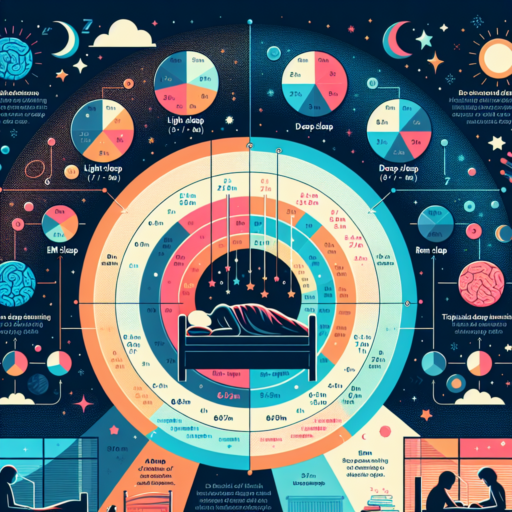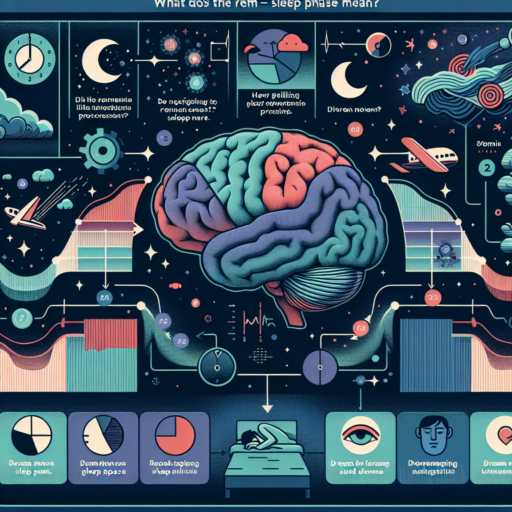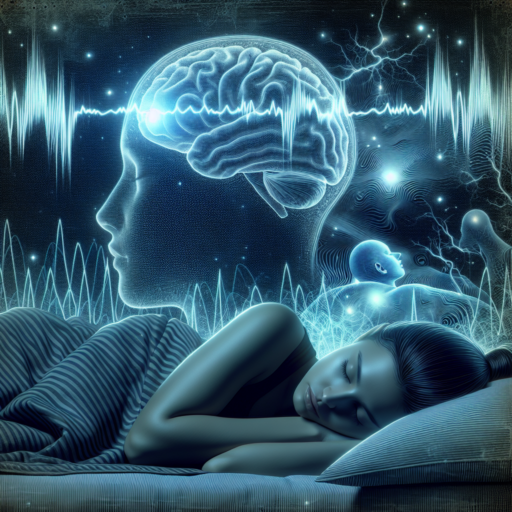How long should you be in each stage of sleep?
Understanding the duration required in each stage of sleep is crucial for optimizing your sleep health. The human sleep cycle comprises several stages, each pertaining to different aspects of mental and physical rejuvenation. The National Sleep Foundation provides guidelines highlighting how long individuals should spend in each stage for a wholesome night’s sleep. This understanding can lead to improved sleep quality, better health, and enhancing overall well-being.
The Stages of Sleep
- Stage 1 (N1): The lightest stage of sleep, N1 serves as the doorway to deeper sleep stages. Typically, this stage should last for 1-5 minutes, allowing the body to transition smoothly into sleep.
- Stage 2 (N2): Acting as a preparatory phase for deep sleep, N2 is characterized by a reduction in heart rate and body temperature. Spending approximately 10-25 minutes in this stage is considered optimal for most adults.
- Stages 3 and 4 (N3) – Deep Sleep: The deepest sleep stage, N3, is crucial for physical recovery, memory consolidation, and hormonal regulation. Adults should aim for 20-40 minutes in this rejuvenating stage per sleep cycle.
- Rapid Eye Movement (REM) Sleep: Crucial for cognitive functions such as memory, learning, and creativity, the REM stage should encompass about 10-25% of your total sleep time, translating to roughly 90-120 minutes for an average adult.
It is vital to note that these durations can vary based on age, lifestyle, and individual health conditions. As sleep cycles repeat several times throughout the night, paying attention to the cumulative time spent in each stage is as important as recognizing the significance of each individual stage. The balance and transitions between these stages are key indicators of sleep quality and overall health.
What is the longest sleep phase?
The question of what is the longest sleep phase is frequently explored by those keen on enhancing their sleep quality and understanding the complexities of sleep cycles. The answer to this intriguing question lies in the realm of rapid eye movement (REM) and non-rapid eye movement (NREM) sleep stages. Among these stages, one phase stands out due to its duration and essential role in our overall health and well-being.
NREM Stage 3: The Deepest Sleep Phase
Non-Rapid Eye Movement (NREM) sleep consists of three stages, with Stage 3 being the deepest and the longest sleep phase. This stage, also known as deep or slow-wave sleep, typically lasts for 20-40 minutes during the first sleep cycle, potentially extending longer in subsequent cycles throughout the night. During NREM Stage 3, the body undergoes significant restorative processes: muscles relax, blood pressure drops, and tissue growth and repair occur, emphasizing its critical role in physical health.
Understanding the nuances of the longest sleep phase can be instrumental for individuals looking to improve sleep quality. By prioritizing habits that enhance deep sleep, such as maintaining a consistent sleep schedule and creating a restful bedtime environment, individuals can leverage the benefits of NREM Stage 3 sleep for improved health and well-being.
No se han encontrado productos.
How many hours is 4 sleep cycles?
Understanding the intricacies of sleep cycles is key to appreciating the importance of a good night’s rest. Each sleep cycle comprises several stages, including both REM (Rapid Eye Movement) and non-REM phases, that our body goes through to repair, restore, and strengthen itself. On average, a single sleep cycle lasts about 90 to 110 minutes. Therefore, when considering 4 sleep cycles, we’re broadly looking at a time frame that spans from 360 to 440 minutes in total.
This calculation is based on the premise that each cycle smoothly transitions into the next, allowing the body and mind to move through the necessary stages of sleep. When multiplied by four, these cycles accumulate to approximately 6 to 7.3 hours of sleep. This duration fits well within the recommended 7 to 9 hours of nightly sleep for most adults, underscoring the significance of completing multiple sleep cycles for optimal health and well-being.
However, it’s critical to note that the exact duration can vary from one individual to another due to various factors, including age, lifestyle, and overall health. While some may seamlessly progress through sleep cycles, others might experience interruptions, possibly leading to a need for additional sleep time to complete 4 full cycles. Consequently, understanding your personal sleep patterns can be instrumental in achieving the restorative sleep your body requires.
How much deep light and REM sleep do you need?
Understanding the different stages of sleep is crucial in comprehending the amount of deep, light, and REM (Rapid Eye Movement) sleep you require for optimal health. Each stage of sleep plays a unique role in the body’s recovery and cognitive functions. While individual needs may vary, there are general guidelines that can help ensure you’re getting the restorative rest you need.
Deep Sleep Requirements
Deep sleep, also known as slow-wave sleep, is essential for physical recovery, memory consolidation, and regulating growth hormones. For most adults, achieving 20-25% of their sleep in deep stages is considered healthy. This translates to roughly 1.5 to 2 hours of deep sleep per night for someone who sleeps 8 hours.
Light Sleep and its Significance
Light sleep acts as a transition phase between wakefulness, deeper sleep stages, and REM sleep. Though often underrated, light sleep constitutes approximately 50-60% of your night. It is during this stage that the body processes memories and emotions, promotes mental and physical restoration, and supports daytime performance.
Optimal REM Sleep Duration
REM sleep, the period associated with vivid dreams, is critical for mood regulation, learning, and memory consolidation. On average, adults should aim for 20-25% of their nightly sleep to be in the REM stage, which amounts to about 1.5 to 2 hours of REM sleep for someone getting 8 hours of rest. This stage becomes more prolonged as the night progresses, peaking during the second half of your sleep.




